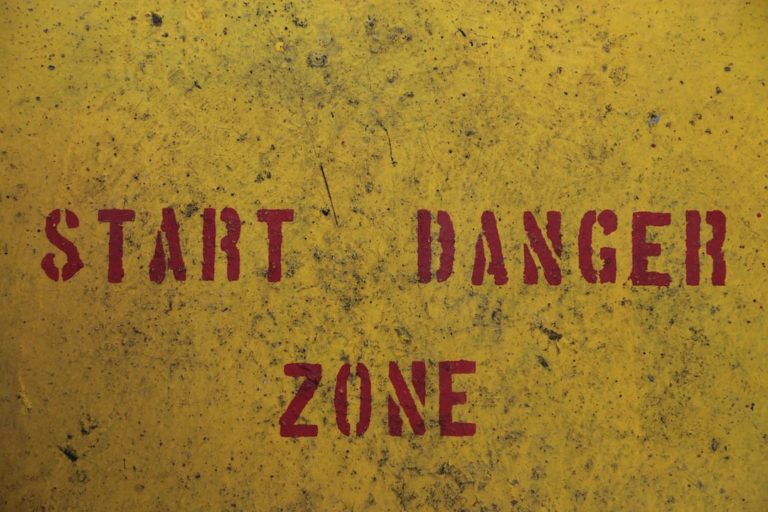October is recognized as National Depression and Mental Health Screening Month, a critical time dedicated to raising awareness about mental health conditions and encouraging individuals to take proactive steps toward assessment and treatment. This observance emphasizes the importance of early detection through mental health screenings, which can be life-changing for millions of Americans struggling with depression and other mental health disorders.
Understanding National Depression Screening Month
National Depression and Mental Health Screening Month was established to reduce the stigma surrounding mental health conditions and promote early intervention. Depression affects approximately 21 million adults in the United States annually, making it one of the most common mental health disorders. Despite its prevalence, many individuals remain undiagnosed and untreated due to barriers such as stigma, lack of awareness, or limited access to care.
The observance encourages healthcare providers, mental health organizations, schools, and communities to offer free or low-cost mental health screenings. These screenings serve as valuable tools for identifying symptoms of depression, anxiety, bipolar disorder, PTSD, and other conditions that may require professional intervention.
Why Mental Health Screenings Matter
Mental health screenings are brief questionnaires or assessments designed to identify potential mental health concerns. They are not diagnostic tools but rather initial steps that can indicate whether someone should seek a comprehensive evaluation from a mental health professional.
Early detection through screening can lead to:
Improved Treatment Outcomes: Identifying mental health conditions in their early stages often results in more effective treatment and faster recovery. When depression and other mood disorders are caught early, individuals can access appropriate interventions before symptoms become severe or debilitating.
Reduced Suicide Risk: Depression is a leading risk factor for suicide. Regular screenings can identify individuals at risk and connect them with crisis resources and ongoing mental health support. According to the Centers for Disease Control and Prevention (CDC), suicide is the second leading cause of death among individuals aged 10-34, highlighting the critical importance of early intervention.
Better Quality of Life: Untreated mental health conditions can significantly impact daily functioning, relationships, work performance, and overall well-being. Timely screening and subsequent treatment help individuals regain control of their lives and maintain healthy relationships.
Decreased Healthcare Costs: Early intervention through screening can prevent the escalation of mental health conditions, reducing the need for more intensive and costly treatments later. The National Alliance on Mental Illness (NAMI) reports that untreated mental illness costs the United States over $300 billion annually in lost productivity and healthcare expenses.
Common Mental Health Conditions Identified Through Screening
Mental health screenings during October focus on several common conditions:
Depression
Depression is characterized by persistent feelings of sadness, hopelessness, and loss of interest in activities. Symptoms may include changes in sleep patterns, appetite fluctuations, difficulty concentrating, and thoughts of death or suicide. Depression comes in many forms, including male depression, postpartum depression, and dysthymic disorder.
The National Institute of Mental Health (NIMH) reports that major depressive disorder affects approximately 8.4% of U.S. adults, with women experiencing depression at nearly twice the rate of men. Recognizing teen depression is particularly important, as adolescents may display different symptoms than adults.
Anxiety Disorders
Anxiety disorders encompass a range of conditions including generalized anxiety disorder, panic disorder, social anxiety, and specific phobias. These conditions involve excessive worry, fear, and physical symptoms like rapid heartbeat and shortness of breath. Understanding the difference between panic attacks and anxiety attacks can help individuals better identify their symptoms.
Bipolar Disorder
Bipolar disorder involves extreme mood swings between manic or hypomanic episodes and depressive episodes. Early identification is crucial for managing this chronic condition effectively. It’s important to understand the differences between borderline personality disorder and bipolar disorder as these conditions are sometimes confused.
Post-Traumatic Stress Disorder (PTSD)
PTSD can develop after experiencing or witnessing a traumatic event. Symptoms include intrusive memories, avoidance behaviors, negative changes in thinking and mood, and heightened arousal. Veterans and first responders are particularly at risk for developing PTSD.
Obsessive-Compulsive Disorder (OCD)
OCD involves unwanted, recurring thoughts (obsessions) and repetitive behaviors (compulsions). Early screening can help individuals access evidence-based treatments like exposure and response prevention therapy.
How to Participate in National Depression Screening Month
Take an Online Screening
Numerous organizations offer free, confidential online mental health screenings. These brief assessments typically take 5-10 minutes to complete and provide immediate feedback about whether you should consider speaking with a mental health professional.
Southern California Sunrise Recovery Center offers several free screening tools:
- Depression Self-Test
- Anxiety Self-Test
- ADHD Self-Test
- BPD Self-Test
- OCD Quiz
- PTSD Self-Test
- Postpartum Depression Quiz
- Social Anxiety Test
The National Alliance on Mental Illness (NAMI) also provides screening tools at https://www.nami.org/screening, and Mental Health America offers comprehensive screenings at https://screening.mhascreening.org/.
Attend Community Screening Events
Many healthcare facilities, universities, community centers, and mental health organizations host free screening events during October. These events often include educational workshops, resource fairs, and opportunities to connect with local mental health providers.
Talk to Your Healthcare Provider
Schedule an appointment with your primary care physician or mental health professional to discuss any concerns about your mental health. Regular check-ups should include mental health screenings just as they include physical health assessments.
Advocate for Mental Health Awareness
Use National Depression Screening Month as an opportunity to reduce stigma by sharing information about mental health on social media, organizing awareness events, or simply having open conversations with friends and family about mental wellness.
Warning Signs That Indicate You Should Seek a Screening
Consider getting a mental health screening if you or someone you know experiences any of the following:
- Persistent sadness, anxiety, or feeling empty
- Loss of interest in activities once enjoyed
- Changes in appetite or weight
- Sleep disturbances (insomnia or oversleeping)
- Decreased energy or fatigue
- Difficulty concentrating or making decisions
- Feelings of worthlessness or excessive guilt
- Thoughts of death or suicide
- Unexplained physical symptoms without clear medical cause
- Withdrawal from social activities and relationships
- Increased irritability or anger
- Substance abuse or increased use of alcohol or drugs
If you’re experiencing thoughts of suicide or self-harm, call the 988 Suicide and Crisis Lifeline immediately by dialing 988, or text HOME to 741741 to reach the Crisis Text Line.
Understanding Depression: Types and Symptoms
Depression manifests in various forms, and understanding these differences is crucial for proper treatment:
Major Depressive Disorder
Major depressive disorder involves severe symptoms that interfere with daily activities. Individuals may struggle with work, school, sleep, eating, and enjoying life. Episodes may occur once or multiple times throughout life.
Persistent Depressive Disorder (Dysthymia)
Dysthymic disorder is characterized by a depressed mood that lasts for at least two years. While symptoms may be less severe than major depression, the chronic nature significantly impacts quality of life.
Seasonal Affective Disorder (SAD)
Seasonal depression typically occurs during winter months when there is less natural sunlight. Symptoms include low energy, oversleeping, weight gain, and social withdrawal.
Postpartum Depression
Postpartum depression affects some women after giving birth. Symptoms extend beyond the “baby blues” and include severe mood swings, difficulty bonding with the baby, and overwhelming fatigue.
Atypical Depression
This subtype involves mood reactivity—the ability to be cheered up by positive events—along with symptoms like increased appetite, excessive sleep, and sensitivity to rejection.
The Connection Between Depression and Co-Occurring Conditions
Depression rarely exists in isolation. Many individuals with depression also experience:
Depression and Substance Abuse
Depression and addiction frequently co-occur, with individuals sometimes using substances to self-medicate their symptoms. This creates a dangerous cycle where substance use worsens depression, which in turn increases substance use. Understanding the difference between drug addiction and dependence is important for comprehensive treatment.
The Substance Abuse and Mental Health Services Administration (SAMHSA) reports that approximately 9.2 million adults in the United States have co-occurring mental health and substance use disorders. Treatment must address both conditions simultaneously through dual diagnosis treatment for optimal outcomes.
Depression and Anxiety
Anxiety disorders and depression commonly occur together. In fact, the Anxiety and Depression Association of America (ADAA) reports that nearly half of those diagnosed with depression are also diagnosed with an anxiety disorder. This comorbidity requires integrated anxiety treatment approaches.
Depression and Chronic Physical Conditions
Chronic illnesses such as diabetes, heart disease, and chronic pain are associated with higher rates of depression. The bidirectional relationship between physical and mental health underscores the importance of comprehensive healthcare.
Treatment Options Following a Positive Screening
If a mental health screening suggests you may be experiencing depression or another mental health condition, several evidence-based treatment options are available:
Psychotherapy
Psychotherapy, particularly cognitive-behavioral therapy (CBT), is highly effective for treating depression. CBT therapy helps individuals identify and change negative thought patterns and behaviors. Other effective approaches include dialectical behavior therapy (DBT), EMDR therapy for trauma-related depression, and narrative therapy.
Medication
Antidepressants can help regulate brain chemistry and alleviate symptoms of depression. It’s important to work closely with a psychiatrist to find the right medication and dosage, as individual responses vary. Medication-assisted treatment may be particularly beneficial for individuals with co-occurring substance use disorders.
Residential Treatment
For severe depression or when outpatient treatment hasn’t been effective, residential mental health treatment provides intensive, 24-hour care in a structured environment. This level of care allows individuals to focus entirely on recovery without the distractions and triggers of daily life.
Holistic Approaches
Complementary treatments can enhance traditional therapies. These include holistic therapy approaches, yoga therapy, equine therapy, mindfulness practices, regular exercise, nutritional counseling, and adequate sleep.
Nutrition and mental health are closely connected, with diet playing a significant role in mood regulation. Being aware of foods that cause anxiety can also support mental wellness.
Support Groups
Group therapy provides opportunities to connect with others facing similar challenges, reducing isolation and offering mutual support and practical coping strategies.
Barriers to Mental Health Screening and Treatment
Despite the availability of screening tools and treatments, several barriers prevent individuals from seeking help:
Stigma
Stigma remains one of the most significant obstacles to mental health care. Many people fear judgment from others or internalize negative beliefs about mental illness. Misconceptions about mental health perpetuate this stigma and prevent individuals from seeking necessary care.
Lack of Awareness
Some individuals don’t recognize the symptoms of depression or understand that what they’re experiencing is treatable. Education and awareness campaigns during National Depression Screening Month help address this gap.
Access to Care
Financial constraints, lack of insurance, limited availability of mental health providers, and geographic barriers can prevent individuals from accessing screening and treatment services. However, many insurance plans now cover mental health services, and facilities like Southern California Sunrise Recovery Center work with major insurance providers to make treatment accessible.
Fear of Consequences
Concerns about professional repercussions, loss of employment, or impact on relationships may discourage individuals from seeking help. It’s important to know that mental health conditions are protected under various employment laws and that seeking treatment is a sign of strength.
Special Populations and Mental Health Screening
Children and Adolescents
Children and mental health deserve special attention, as early intervention can significantly alter developmental trajectories. Warning signs in young people may differ from adults and can include academic decline, behavioral changes, social withdrawal, and physical complaints without medical cause.
Recognizing teen depression is particularly challenging as adolescence naturally involves mood fluctuations. However, persistent symptoms lasting more than two weeks warrant professional evaluation.
Veterans and First Responders
Veterans and first responders face unique mental health challenges, including higher rates of PTSD, depression, and substance use disorders. Specialized programs that understand the military and first responder culture are essential for effective treatment.
PTSD in military veterans requires specialized care that addresses combat-related trauma and the challenges of transitioning to civilian life.
Older Adults
Depression in seniors is often underdiagnosed and undertreated. Physical health problems, grief, social isolation, and cognitive changes can contribute to depression in older adults. Healthcare providers should routinely screen elderly patients for depression.
LGBTQ+ Community
The LGBTQ+ community experiences mental health disparities, with higher rates of depression, anxiety, and suicidal ideation compared to the general population. Substance abuse in the LGBTQ community is also elevated due to minority stress, discrimination, and social stigma.
The Role of Technology in Mental Health Screening
Digital health tools have expanded access to mental health screenings:
Online Screening Tools
Websites and mobile apps offer convenient, anonymous screening options that reduce barriers to initial assessment. These tools provide immediate feedback and resources for next steps.
Telepsychiatry
Telehealth services enable individuals to consult with mental health professionals remotely, increasing access for those in rural areas or with mobility challenges.
Mental Health Apps
Various apps support mental wellness through mood tracking, meditation guidance, cognitive behavioral therapy exercises, and crisis intervention resources. ADHD apps can help individuals manage symptoms and track progress.
However, it’s important to note the potential negative impacts of technology. Social media and mental health have a complex relationship, with excessive use potentially contributing to anxiety and depression.
Creating a Mental Health Action Plan
Following a screening, whether positive or negative, developing a mental health action plan is beneficial:
- Schedule Regular Check-ins: Commit to periodic mental health assessments, just as you would physical health check-ups
- Build a Support Network: Identify trusted friends, family members, or support groups you can turn to when needed
- Establish Healthy Routines: Prioritize sleep, nutrition, exercise, and stress management
- Identify Triggers and Warning Signs: Understand what situations or circumstances affect your mental health
- Know Crisis Resources: Keep emergency contact information readily available, including the 988 Suicide and Crisis Lifeline
- Consider Professional Support: Even if you don’t currently need treatment, establishing a relationship with a therapist can be valuable for future support
How Southern California Sunrise Recovery Center Can Help
Southern California Sunrise Recovery Center, located in Mission Viejo, Orange County, provides comprehensive mental health treatment services for individuals struggling with depression and co-occurring conditions. Our evidence-based approach combines traditional therapeutic methods with holistic treatments in a supportive residential environment.
Our Approach to Depression Treatment
Our depression treatment programs are tailored to each individual’s unique needs. We begin with comprehensive psychological evaluation and diagnosis to understand the full scope of each person’s mental health challenges.
Treatment modalities include:
- Individual and group psychotherapy
- Cognitive-behavioral therapy (CBT)
- Dialectical behavior therapy (DBT)
- EMDR therapy for trauma-related depression
- Medication management
- Holistic therapies including yoga and equine therapy
- Family therapy and education
- Relapse prevention planning
Specialized Programs
We offer specialized treatment for:
- Co-occurring mental health and substance use disorders through our dual diagnosis program
- PTSD treatment for trauma survivors
- Anxiety disorders
- Bipolar disorder
- Mood disorders
- First responder mental health and veteran mental health treatment
Insurance and Accessibility
We work with major insurance providers to make quality mental health care accessible. Our team can help verify your insurance coverage and explain your benefits.
Take the First Step Today
National Depression and Mental Health Screening Month serves as a powerful reminder that mental health is health. Depression and other mental health conditions are real, common, and treatable. Taking a mental health screening is a simple yet profound act of self-care that can change the trajectory of your life.
If you or someone you love is struggling with depression, anxiety, or other mental health concerns, don’t wait to seek help. Early intervention leads to better outcomes and a faster path to recovery.
Contact Southern California Sunrise Recovery Center today at 949-284-7325 to speak with our compassionate admissions team about how we can support your mental health journey.
Additional Resources
Government and National Organizations
- National Institute of Mental Health (NIMH): https://www.nimh.nih.gov/
- Substance Abuse and Mental Health Services Administration (SAMHSA): https://www.samhsa.gov/ | National Helpline: 1-800-662-4357
- Centers for Disease Control and Prevention (CDC) – Mental Health: https://www.cdc.gov/mentalhealth/
- National Alliance on Mental Illness (NAMI): https://www.nami.org/ | Helpline: 1-800-950-6264
- Mental Health America: https://www.mhanational.org/
Crisis Resources
- 988 Suicide and Crisis Lifeline: Dial 988 (available 24/7)
- Crisis Text Line: Text HOME to 741741
- Veterans Crisis Line: Dial 988 and press 1, or text 838255
- Trevor Project (LGBTQ+ youth): 1-866-488-7386 or text START to 678678
Online Screening Tools
- Mental Health America Screening: https://screening.mhascreening.org/
- NAMI Online Screening: https://www.nami.org/screening
- Southern California Sunrise Recovery Center Screenings: https://socalsunrise.com/resources/
References
- National Institute of Mental Health. (2024). Major Depression. Retrieved from https://www.nimh.nih.gov/health/statistics/major-depression
- Centers for Disease Control and Prevention. (2024). Mental Health Conditions: Depression and Anxiety. Retrieved from https://www.cdc.gov/tobacco/campaign/tips/diseases/depression-anxiety.html
- Substance Abuse and Mental Health Services Administration. (2023). Key Substance Use and Mental Health Indicators in the United States. Retrieved from https://www.samhsa.gov/data/
- National Alliance on Mental Illness. (2024). Mental Health By The Numbers. Retrieved from https://www.nami.org/mhstats
- Anxiety and Depression Association of America. (2024). Depression. Retrieved from https://adaa.org/understanding-anxiety/depression
About Southern California Sunrise Recovery Center
Southern California Sunrise Recovery Center is a premier residential mental health treatment facility in Mission Viejo, Orange County, California. We provide evidence-based, compassionate care for individuals struggling with depression, anxiety, PTSD, bipolar disorder, and co-occurring substance use disorders. Our comprehensive approach combines clinical excellence with holistic healing in a supportive, serene environment.
Contact Information: Phone: 949-284-7325 Email: admissions@socalsunrise.com Address: 25481 Gloriosa Dr, Mission Viejo, CA 92691
License #: 306005701 | Joint Commission Accredited
This resource page is for educational purposes only and does not replace professional medical advice, diagnosis, or treatment. If you are experiencing a mental health crisis, please call 988 or go to your nearest emergency room.






